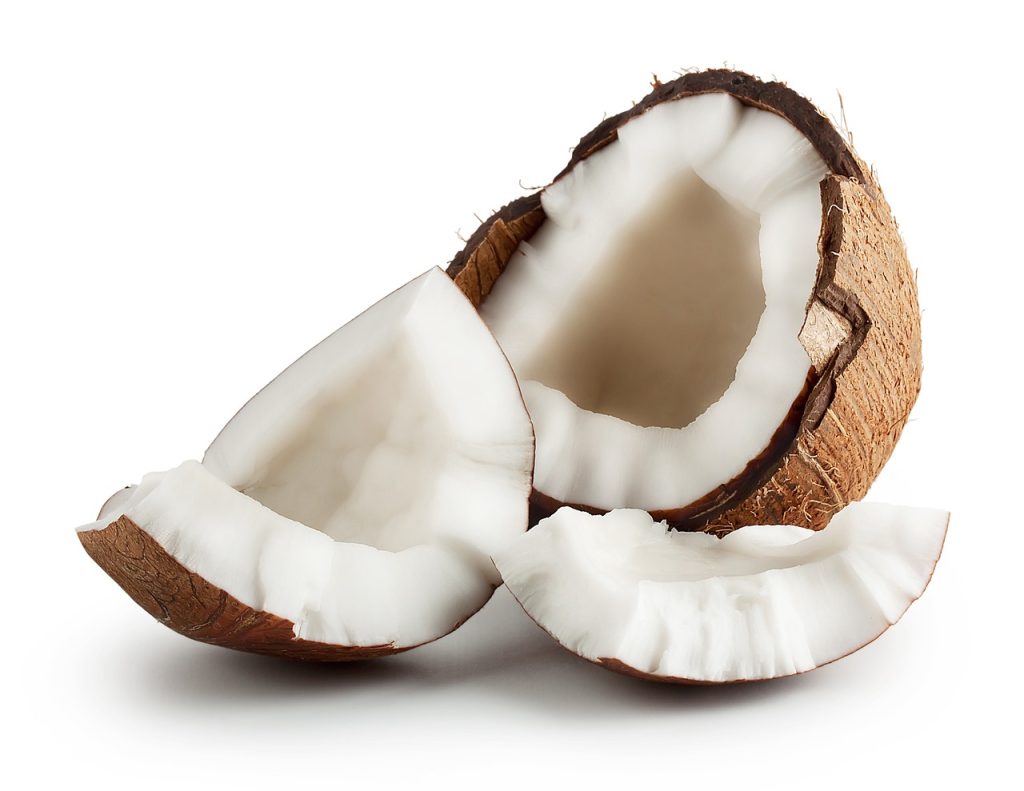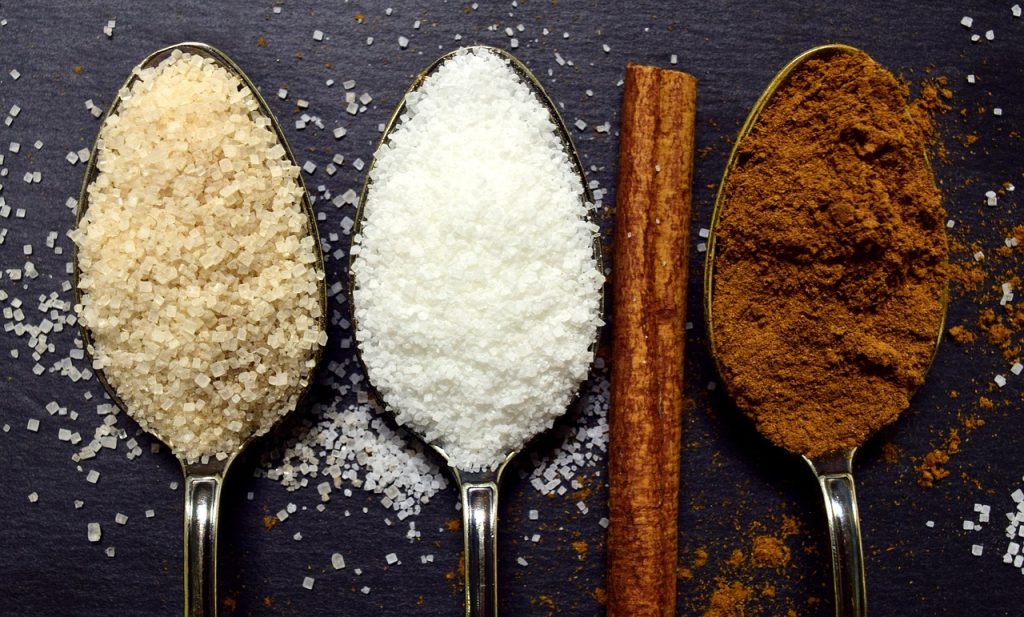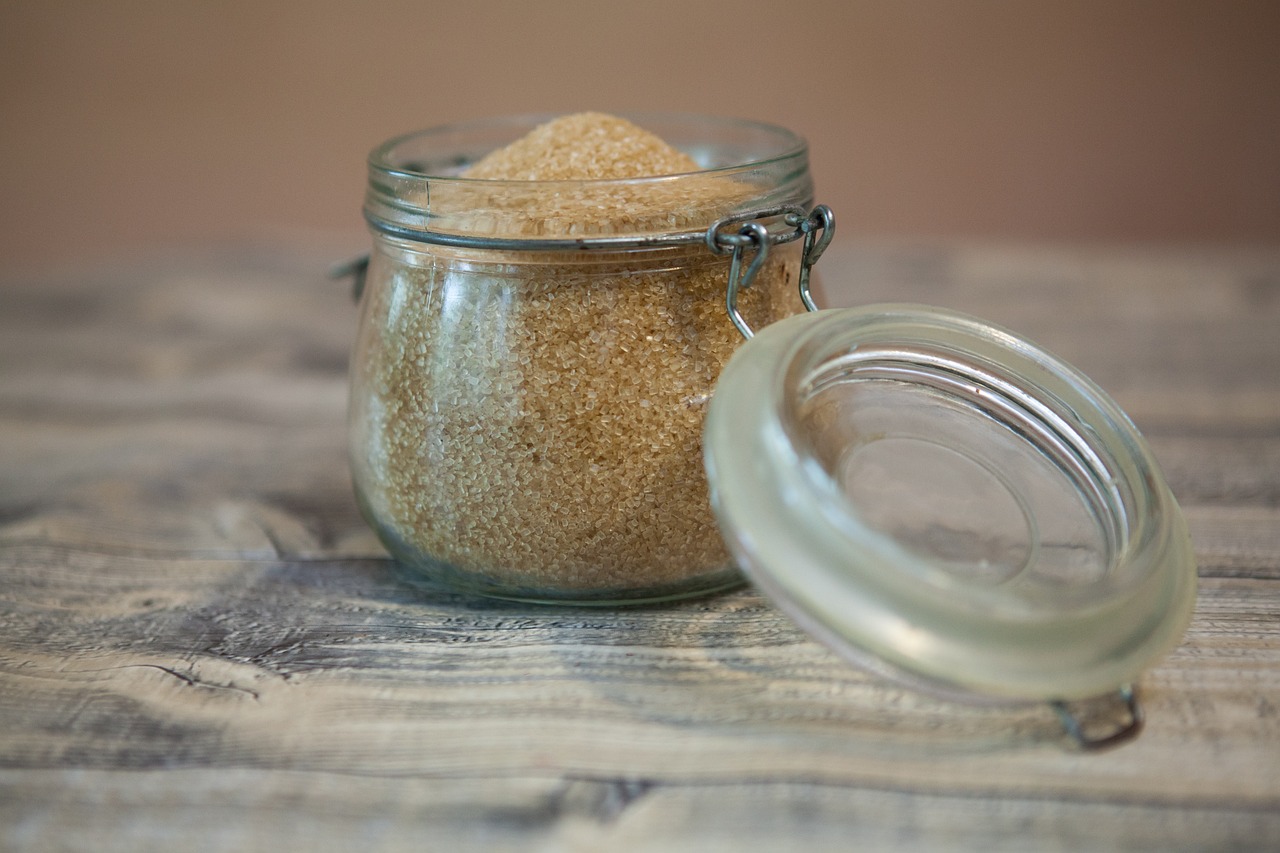Is Coconut Sugar Low FODMAP? Your Guide to FODMAP-Friendly Sweeteners
If you’re following a low FODMAP diet, you may be wondering – is coconut sugar low FODMAP and a safe option?
When it comes to the FODMAP content of coconut sugar, the answer is not entirely straightforward. Some sources suggest that coconut sugar is low FODMAP in small amounts, while others indicate that it can be high in FODMAP in larger quantities.
The Monash University FODMAP app lists coconut sugar as moderate in FODMAPs, meaning that it may be tolerated in small amounts by some people with IBS. However, the app notes that more research is needed to determine the exact FODMAP content of coconut sugar.
Also Read: Is Erythritol Low FODMAP
What is Coconut Sugar?

Coconut sugar is a natural sweetener that is derived from the sap of the coconut palm tree. It has a caramel-like flavor and is often used as a substitute for brown sugar in baking recipes.
Difference Between Other Sugars and Coconut Sugar
Unlike regular table sugar, which is highly processed and refined, coconut sugar is minimally processed and retains some of the nutrients found in the coconut palm tree. It contains small amounts of vitamins and minerals, including iron, zinc, calcium, and potassium.
Low GIycemic Index
Coconut sugar is also low on the glycemic index, which means it doesn’t cause a rapid spike in blood sugar levels as regular table sugar does. This makes it a popular choice for people who are looking for a natural sweetener that won’t cause blood sugar crashes.
Is Coconut Sugar Low FODMAP
When it comes to FODMAPs, coconut sugar is considered to be low FODMAP in small amounts. According to Monash University, a serving size of 1 tablespoon (15g) of coconut sugar is considered to be low FODMAP. However, it’s important to keep in mind that coconut sugar is still a source of fructose, so it should be consumed in moderation.
Overall, coconut sugar can be a good option for those following a low FODMAP diet who are looking for a natural sweetener that won’t cause blood sugar spikes. However, it’s important to keep an eye on portion sizes and to consume it in moderation.
Also Read: Is Balsamic Vinegar Low FODMAP
Coconut Sugar’s Nutrient Content
Here is a nutrition table for a 1 tablespoon or 12 grams serving of coconut sugar:
| Nutrition Facts | Amount per serving |
|---|---|
| Calories | 45 |
| Total Fat | 0g |
| Sodium | 5mg |
| Total Carbohydrate | 12g |
| Sugars | 12g |
| Protein | 0g |
Minerals and Antioxidants
Coconut sugar contains several nutrients that are not found in regular sugar. It is a good source of potassium, magnesium, zinc, and iron. These minerals are essential for maintaining good health and are often lacking in the modern diet. Coconut sugar also contains antioxidants, which can help protect the body against damage from free radicals.
Prebiotic Fiber
In addition to these nutrients, coconut sugar also contains inulin, a type of prebiotic fiber. Prebiotic fiber feeds the good bacteria in your gut, which can help improve digestion and boost your immune system.
Sugar Content in Coconut Sugar
Additionally, coconut sugar contains higher levels of glucose and fructose than regular table sugar. Here is a table for the glucose, fructose, and excess fructose content per serving suggestion:
| Sugar | Amount per serving |
|---|---|
| Glucose | 3.6g |
| Fructose | 3.4g |
| Excess Fructose | 0g |
Overall, coconut sugar can be a suitable low-FODMAP alternative to regular sugar in small amounts. However, it’s important to be mindful of serving sizes and to consume it as part of a balanced diet.
Also Read: Is Jackfruit Low FODMAP
Other Health Benefits of Coconut Sugar

Healthier Alternative to Refined Sugar
Coconut sugar is a natural sweetener that is derived from the sap of coconut palms. It has gained popularity as a healthier alternative to regular sugar due to its lower glycemic index and higher nutrient content. In this section, we will discuss the health benefits of coconut sugar.
Vegan and Gluten-Free
Coconut sugar is ideal for baking and for vegan and gluten-free recipes. There are no animal products in the sugar.
Low Glycemic Index
Coconut sugar has a lower glycemic index compared to regular sugar. The glycemic index is a measure of how quickly a food raises your blood sugar levels.
Foods with a high glycemic index can cause a rapid spike in blood sugar levels, which can lead to a crash later on. Coconut sugar has a glycemic index of 35, while regular sugar has a glycemic index of 60-65. This means that coconut sugar is absorbed more slowly by the body, leading to a more stable blood sugar level.
How to Incorporate Coconut Sugar in a Low Fodmap Diet

When incorporating coconut sugar into your low FODMAP diet, it’s important to keep in mind the recommended serving size. Monash University, the leading authority on the low FODMAP diet, recommends limiting coconut sugar to 1 tablespoon per serving.
Here are some tips on how to incorporate coconut sugar into your low FODMAP diet:
- Use it as a sweetener in your morning coffee or tea. Start with 1 teaspoon and gradually increase to 1 tablespoon if tolerated.
- Use it in baking recipes that call for sugar. Keep in mind the recommended serving size and adjust the recipe accordingly.
- Sprinkle it on top of breakfast of oatmeal or yogurt for a touch of sweetness.
- Use it in marinades or sauces for a sweet and savory flavor.
Avoid Other Coconut Products
It’s important to note that while coconut sugar is low FODMAP, other coconut products such as coconut milk and shredded coconut can be high in FODMAPs. Be sure to check the Monash University FODMAP app or website for specific serving sizes and recommendations.
Potential Side Effects

While coconut sugar is generally considered low FODMAP, it is important to note that consuming too much of it may have potential side effects. Here are some things to keep in mind:
High in Calories and Carbs
Coconut sugar is still a form of sugar and contains calories and carbohydrates. While it does have a lower glycemic index than regular sugar, it is not a calorie-free or carb-free alternative. Consuming too much coconut sugar can lead to weight gain and blood sugar spikes, especially if you have diabetes.
May Cause Digestive Issues
While coconut sugar is low FODMAP, it still contains fructose, which can cause digestive issues in some people. Consuming large amounts of coconut sugar can lead to bloating, gas, and diarrhea. It is important to consume coconut sugar in moderation and pay attention to how your body reacts to it.
May Contain Additives
Some brands of coconut sugar may contain additives such as cornstarch or maltodextrin to prevent clumping. These additives may not be low FODMAP and can cause digestive issues in some people. It is important to read the label carefully and choose a brand that does not contain any additives.
May Not Be Suitable for Everyone
While coconut sugar is low FODMAP, it may not be suitable for everyone. If you have a coconut allergy or sensitivity, you should avoid coconut sugar. Additionally, if you are following a low-carb or ketogenic diet, coconut sugar may not be suitable as it contains carbohydrates.
Overall, coconut sugar is a low FODMAP alternative to regular sugar. However, it is important to consume it in moderation and pay attention to how your body reacts to it. If you experience any negative side effects, you should consult with a healthcare professional.
Also Read: Are Skittles Low FODMAP
Conclusion – Is Coconut Sugar Low FODMAP
In conclusion, coconut sugar is a low FODMAP sweetener option for individuals with irritable bowel syndrome (IBS). The Monash University FODMAP app lists coconut sugar as low FODMAP in a 1 tablespoon serving size. However, it is important to note that coconut sugar is still a type of sugar and should be consumed in moderation.
Coconut sugar is a great alternative to traditional table sugar as it has a lower glycemic index and contains some nutrients such as iron, zinc, and potassium. It is also a vegan and gluten-free option. However, it is important to keep in mind that coconut sugar is still a source of added sugars and should not be consumed in excess.
If you are following a low FODMAP diet, it is important to read food labels carefully and pay attention to serving sizes. While coconut sugar is low FODMAP in small amounts, consuming large quantities may lead to symptoms of IBS.
Frequently Asked Questions
What are some low FODMAP sweeteners?
If you’re following a low FODMAP diet, you may be wondering if coconut sugar is a good sweetener option for you. While coconut sugar is a natural sweetener that’s becoming increasingly popular, it’s important to note that it’s not necessarily low FODMAP.
Some low FODMAP sweeteners that you can consider instead of coconut sugar include:
- Maple syrup
- Rice malt syrup
- Stevia
- Sucralose
- Glucose syrup
It’s important to note that some artificial sweeteners like sorbitol, mannitol, and xylitol are high FODMAP and should be avoided on a low FODMAP diet.
If you’re unsure about which sweeteners are low FODMAP, it’s always a good idea to check with a registered dietitian who specializes in the low FODMAP diet. They can help you choose the best sweetener options for your individual needs and help you avoid any potential triggers.

Jane Porter is an architect that like many others, had her life significantly impacted by digestive problems for many year. Trying to find a solution to her digestive problem, she came across the low FODMAP diet, a scientifically-backed approach designed to alleviate symptoms associated with irritable bowel syndrome (IBS) and other digestive disorders.




